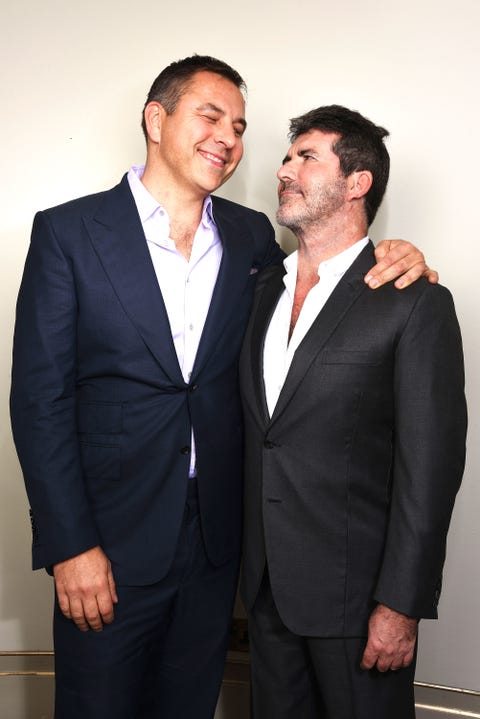Exploring The Sound Perimeter: The Role Of Music In Shared Experience

Table of Contents
Music as a Universal Language
Music’s ability to transcend linguistic and cultural barriers is perhaps its most remarkable quality. It acts as a universal language, fostering shared understanding and emotional connection even across vastly different backgrounds. This is not simply anecdotal; research supports the idea of a universal language of music.
- Cross-cultural musical similarities: Many musical structures, such as the use of major and minor scales to convey emotions, are found across cultures, suggesting an innate human understanding of musical expression. Think of the similar rhythmic structures in African drumming and Brazilian samba, or the pentatonic scales found in both Scottish folk music and traditional Chinese melodies.
- Emotional universality: Regardless of language, we generally understand the emotional weight of music. A melancholic melody evokes sadness, a triumphant fanfare inspires joy, regardless of the listener's cultural background. This emotional universality is key to music's power in shared experience.
- Neurological responses: Neuroscientific studies have shown similar brain responses to emotionally evocative music across diverse cultures, highlighting the biological basis of our shared musical experience. The release of endorphins and other neurochemicals in response to music is a powerful unifying force.
Music and Collective Identity
Music plays a vital role in shaping and reinforcing collective identity, acting as a powerful glue that binds communities and preserves cultural heritage. It's more than just entertainment; it's a cornerstone of our shared social fabric.
- National identity: National anthems are prime examples of music's role in shaping national identity. These songs embody a nation's history, values, and aspirations, fostering a sense of shared patriotism and unity among its citizens. Folk songs, passed down through generations, similarly preserve cultural heritage and transmit collective memory.
- Social movements and political activism: Throughout history, music has been a powerful tool for social and political change. Protest songs, anthems of revolution, and rallying cries often employ music to unite groups and inspire action, creating a powerful sense of collective purpose.
- Religious and spiritual practices: In many religious traditions, music is integral to worship and spiritual practices. Choral singing, hymns, and devotional chants foster a profound sense of community and shared spiritual experience, solidifying religious identity and promoting collective faith.
The Power of Shared Musical Experiences in Different Contexts
The impact of shared musical experiences manifests in various settings, each offering unique opportunities for connection and community building.
Live Music Events (Concerts, Festivals)
Live music events create a unique atmosphere of collective energy and shared emotion. The vibrant energy of a concert, the synchronized movements of a crowd singing along, and the collective emotional response to a powerful performance all contribute to a potent sense of community among attendees. This shared experience fosters lasting bonds and creates memorable moments of unity.
Social Gatherings and Celebrations
From family singalongs to boisterous parties and cultural festivals, music is a central element in social gatherings. Music creates a joyful atmosphere, encouraging interaction, stimulating memory formation, and providing a soundtrack for shared experiences. The nostalgic power of a particular song can instantly transport individuals back to shared moments, strengthening social bonds.
Music Therapy and Shared Healing
Music therapy utilizes the power of music to promote healing and well-being, often in group settings. Shared musical experiences can foster emotional release, improve communication, and enhance group cohesion, particularly beneficial for individuals facing trauma or mental health challenges. The act of creating music together, or simply listening to it in a group setting, can facilitate shared healing and recovery.
The Future of Shared Musical Experiences
Technology is rapidly transforming the landscape of shared musical experiences, creating both challenges and exciting new opportunities.
- Online platforms and streaming services: Services like Spotify and Apple Music allow for widespread music sharing and collaborative playlists, connecting individuals across geographical boundaries and fostering a global sense of shared musical taste.
- Virtual and augmented reality: VR and AR technologies offer the potential to create immersive and interactive musical experiences, allowing individuals to share virtual concerts or collaborate on music creation in innovative ways. Imagine attending a virtual concert with friends across the globe, experiencing the music and each other's presence as if you were all in the same room.
- Collaborative music-making tools: Online platforms facilitate collaborative music creation, enabling individuals from diverse backgrounds to work together on musical projects, fostering cross-cultural understanding and artistic innovation.
Conclusion:
The power of music in forging shared experiences and building connections across diverse backgrounds is undeniable. From the universality of emotional response to music's role in shaping collective identity and fostering community in diverse settings, we've seen how music transcends boundaries and creates powerful bonds. The evolution of technology further enhances the potential for shared musical experiences, offering new ways to connect and collaborate. We encourage you to actively participate in shared musical experiences, fostering a sense of community and understanding. Contribute to the "sound perimeter," enriching your life and the lives of others through the power of music in shared experience. Seek out live events, engage in collaborative music-making, and share the joy of music with those around you.

Featured Posts
-
 Is This The End David Walliams And Simon Cowells Britains Got Talent Dispute
May 22, 2025
Is This The End David Walliams And Simon Cowells Britains Got Talent Dispute
May 22, 2025 -
 Bp Ceo Targets Valuation Doubling Remains Committed To Uk Listing According To Ft
May 22, 2025
Bp Ceo Targets Valuation Doubling Remains Committed To Uk Listing According To Ft
May 22, 2025 -
 Appeal Filed Ex Tory Councillors Wife Fights Racial Hatred Tweet Charge
May 22, 2025
Appeal Filed Ex Tory Councillors Wife Fights Racial Hatred Tweet Charge
May 22, 2025 -
 Carlo Ancelotti Nin Yerine Juergen Klopp Analiz Ve Karsilastirma
May 22, 2025
Carlo Ancelotti Nin Yerine Juergen Klopp Analiz Ve Karsilastirma
May 22, 2025 -
 Racial Hatred Tweet Ex Tory Councillors Wife Seeks Sentence Appeal
May 22, 2025
Racial Hatred Tweet Ex Tory Councillors Wife Seeks Sentence Appeal
May 22, 2025
Latest Posts
-
 The Versatile Use Of Cassis Blackcurrant In Culinary And Mixology
May 22, 2025
The Versatile Use Of Cassis Blackcurrant In Culinary And Mixology
May 22, 2025 -
 Exploring The Rich Flavors Of Creme De Cassis Blackcurrant
May 22, 2025
Exploring The Rich Flavors Of Creme De Cassis Blackcurrant
May 22, 2025 -
 Cassis Blackcurrant Liqueur Production Taste Profile And Cocktail Applications
May 22, 2025
Cassis Blackcurrant Liqueur Production Taste Profile And Cocktail Applications
May 22, 2025 -
 Swiss Foreign Minister Cassis Condemns Pahalgam Terror Attack
May 22, 2025
Swiss Foreign Minister Cassis Condemns Pahalgam Terror Attack
May 22, 2025 -
 Superalimentos Por Que Este Supera Al Arandano En Beneficios Para La Salud
May 22, 2025
Superalimentos Por Que Este Supera Al Arandano En Beneficios Para La Salud
May 22, 2025
